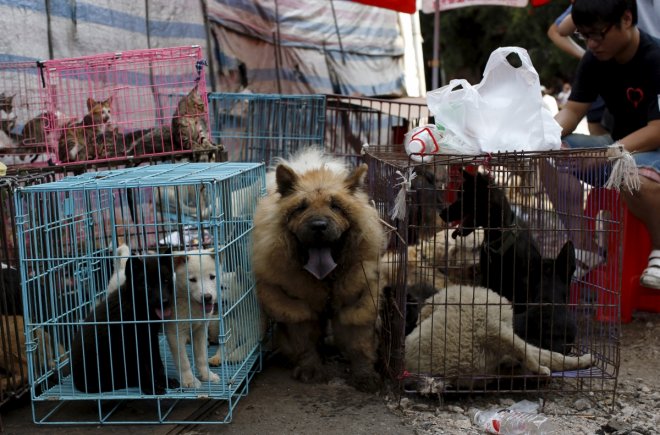
The Taiwan Parliament passed a landmark amendment outlawing consumption, purchase or possession of dog or cat meat on 12 April as a part of its animal protection law, said the island's official Central News Agency (CNA). Reports state that the offenders of the legislation will have to pay a fine of Tw$250,000 ($8,170).
The bill passed in the house has increased the penalty for killing or abusing animals, hiking the jail term to a minimum of two years and a strict fine of Tw$2 million. The amount of the fine is more than double for repeat offenders of the crime.
"This shows that Taiwan is a society with advanced animal welfare," lawmaker Wang Yu-min, who proposed the amendment, said.
People believe that this ban shows the progressive part of a growing trend across Asia to end the brutal dog and cat meat trade. "Previously, the Animal Protection Act only covered the slaughter and sale of dog and cat meat, but this amendment specifically prohibiting the actual consumption of dog meat today is welcome," Jill Robinson, founder and CEO of Animals Asia Foundation told CNN.
The amendment also banned "walking" the pet on a leash pulled by cars and motorcycles and raises the penalty for cruelty to animals.
The China Post reported that some localities in Taiwan have already taken measures and has banned dog and cat meat consumption. But, there was no legal law or national legislation against the practice.
Consumption of dog meat is common in some of the Asian nations, including Taiwan. High-profile cases of animal torture have previously led to public outrage, with campaigners claiming perpetrators were being "let off too easy". Civilians had demanded tougher laws to protect animals and strict laws for animal cruelty as a spade of publicised animal abuse cases in Taiwan.
Last year, the Taiwanese military had faced flak and had to apologise after a video emerged of three soldiers torturing and strangling a stray dog to death with an iron chain. The incident gained intense public criticism and prompted several street protests.
The country's Navy commander Admiral Huang Shu-Kuang had called for an urgent press conference where he issued a statement of apology for the incident. He had also assured the media that all the three soldiers, who admitted guilt, will be duly punished according to the country's Animal Protection Act.
In response to the recent ban, Wendy Higgins, of animal protection charity Humane Society International, told Independent: "Taiwan also sends a strong signal to countries such as China and South Korea where the dog meat trade remains and millions of dogs are killed by beating, hanging or electrocution for eating. It's time for change, and bans like the one in Taiwan utterly dispel the myth that this is promoted by Western sentimentality."









